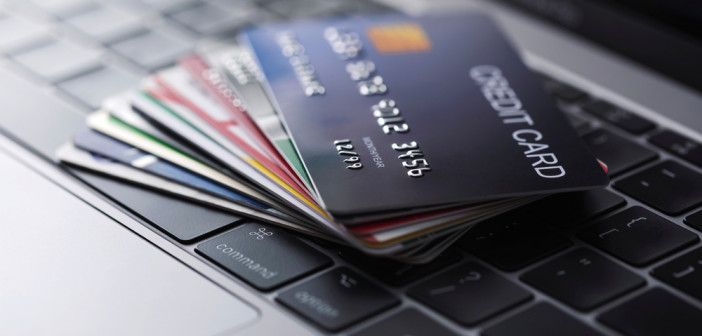The noteworthy expansion of credit cards in India is a remarkable trend. Achieving the milestone of 100 million cards would be a significant accomplishment, indicating widespread acceptance and the growing significance of credit in the Indian economic landscape. The surge in growth can be ascribed to several factors, such as the escalation of disposable income, heightened digital adoption, a broadening range of offerings, and a dedicated focus on financial inclusion.
The fusion of layered security and appealing perks can undoubtedly instill a potent “swipe now, think later” mindset among numerous credit cardholders. It’s akin to a trap set with two irresistible baits. The amalgamation of security, appealing benefits, and our individual spending psychology may result in imprudent credit card usage and substantial financial difficulties. The following tips guide on using your card wisely.
Select and employ the appropriate credit cards
Navigating the extensive and continuously expanding array of credit card options in the Indian market can be overwhelming. Depending solely on agent recommendations, advice from friends, or pre-approved offers may result in missed opportunities or inappropriate choices. A comprehensive comparison is undoubtedly crucial for making an informed decision. Effectively manoeuvering through the realm of credit cards demands both strategic selection and tactical usage.
Understand your credit card
Regrettably, there are occasions when credit card salespersons prioritize closing a sale over providing comprehensive information to potential customers, especially regarding hidden fees. This may result in individuals making decisions based on incomplete information, potentially placing them in unfavourable financial situations.
Being a well-informed and responsible credit card user is essential to prevent unpleasant surprises and hidden fees. Always thoroughly read the fine print, as these offers may come with minimum spending requirements or other conditions for waiving the annual fee. Never assume that “free” means entirely free; be mindful of potential charges associated with using the card beyond the annual fee.
Each charge, whether it be an annual fee, late payment fee, or foreign transaction fee, accumulates over time. Disregarding these charges can result in substantial debt. Be vigilant about all the fees linked to your credit card and incorporate them into your budget.
Adhere to the budget while spending
Budgeting is an essential tool for financial management, but credit cards can pose a challenge because of the psychological gap between spending and the actual cost. The use of a credit card might give the impression of spending “free money,” particularly when one concentrates on rewards points or cashback benefits. This can result in overlooking the real cost of purchases and unintentionally surpassing your budget. Unlike cash or debit cards, the immediate financial impact of spending is absent with credit cards. The bill arrives later, making it easier to rationalize larger purchases in the heat of the moment.
Establish a spending limit for your cards
Utilizing the often overlooked feature provided by many credit card issuers, setting distinct spending limits for domestic and international transactions is a fantastic option. Align these specific spending thresholds with your budget and travel habits to prevent overspending in either category and maintain financial discipline. By establishing lower international limits, you can minimize potential damage in case your card is lost or stolen abroad, restricting unauthorized purchases before deactivation.
Ensure timely repayments consistently
Credit card debt can trap individuals for diverse reasons, with financial indiscipline and forgetfulness being two prevalent culprits. Delaying payments on credit card bills can lead to notable consequences, with high interest rates being among the most substantial and impactful. Interest charges on credit cards start accumulating the day after the due date, not at the end of the billing cycle. This implies that any unpaid amount begins accruing interest immediately.
Credit card interest rates are widely known for being exorbitant, frequently falling within the range of 15% to 30% (or potentially even higher, depending on the specific card and individual circumstances). Consequently, even a modest unpaid balance has the potential to escalate into a significantly larger debt over time. The compounding nature of credit card interest, often occurring daily, results in interest being calculated not just on the initial unpaid amount but also on the accrued interest. This intensifies the pace at which your debt accumulates.
When settling their dues, certain individuals once again find themselves ensnared by the allure of the ‘Minimum Amount Due,’ opting to pay only the required minimum. Yet, they incur interest on the outstanding amount until it is completely repaid.
Avoid using your credit card for cash advances
Many credit card holders mistakenly believe that cash advances function similarly to regular card transactions; however, this is far from the truth. Unlike standard purchases, which often come with a grace period for interest-free payments, cash advances start accruing interest the moment you withdraw the funds. Essentially, you are borrowing money from your credit card issuer at a high interest rate.
The APRs for cash advances are notably higher than those for regular purchases, frequently falling within the range of 15% to 25% or even higher. Consequently, even a modest cash advance can result in substantial interest charges accumulating over time.
Aside from the elevated interest rate, a distinct cash advance fee is typically imposed, calculated as a percentage of the withdrawn amount. This fee may vary from 2% to 5%, contributing additional expenses to the borrowing cost.
Maximize the benefits of reward programs
Leverage the potential of credit card reward programs as an excellent means to save money and indulge in treats for yourself. Allowing reward points to expire means forfeiting opportunities to save on purchases, travel, or other enticing rewards – essentially neglecting free money. Keep in mind that many reward programs come with limitations on when and how points can be redeemed. Failing to meet validity constraints may restrict your ability to claim valuable rewards.
Unused accumulated points could have been consolidated for access to more substantial and superior rewards, such as a dream vacation or a coveted gadget. It’s crucial to consistently review your online statements or utilize your cardholder app to keep track of your accruing points and be aware of their expiration dates.
While credit cards can be beneficial tools when employed responsibly, maintaining financial discipline is crucial to sidestep the pitfalls of debt and excessive spending. Through proactive spending planning, prioritizing needs over wants, and staying mindful of repayment obligations, you can harness the advantages of credit cards without succumbing to the debt trap.




